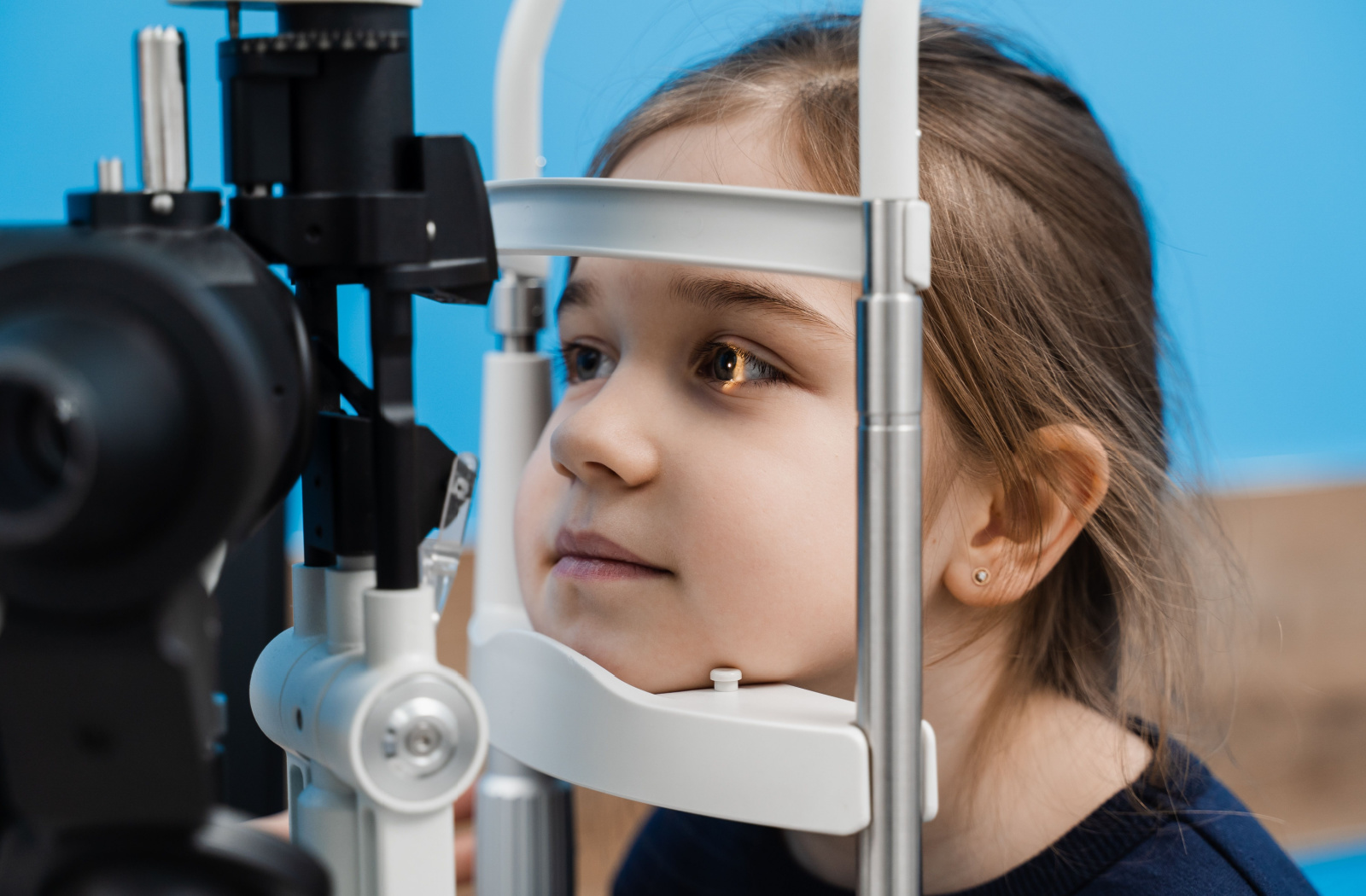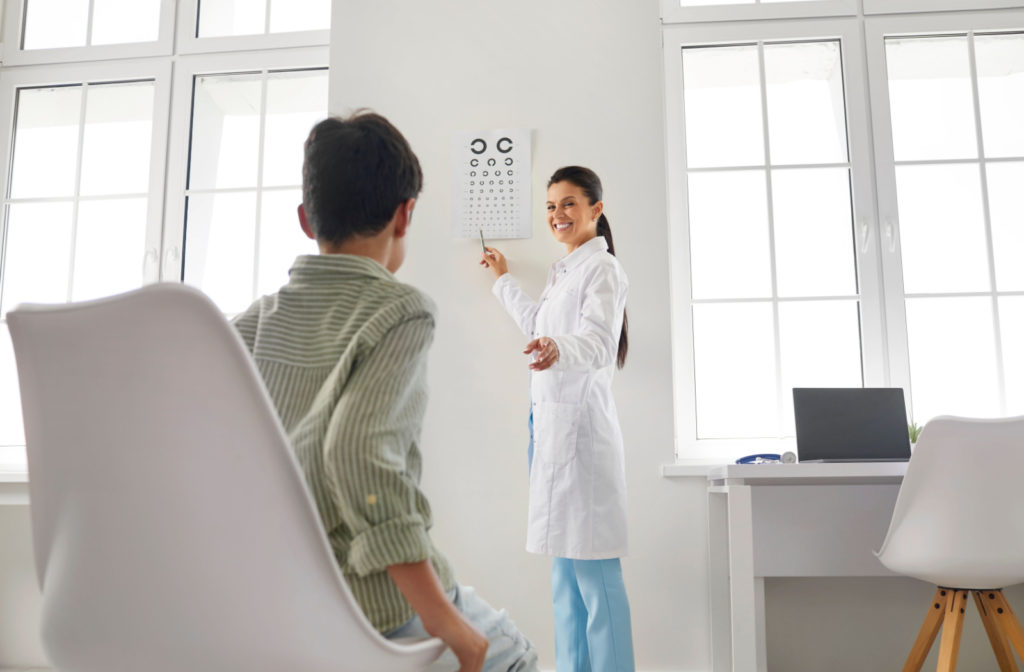Your child’s eyes are precious, and as a parent, it’s always a good idea to take steps to preserve their vision. But you don’t have to do it alone—your optometrist can help! Regular children’s eye exams are an excellent way to help take care of your child’s eyes and vision. But what should you and your child expect at a pediatric eye exam?
During the exam, your optometrist will ask questions about your family history. Then, they’ll go through a series of noninvasive tests to check all kinds of different parts of your child’s eyes, from their visual clarity to their binocular vision.
And don’t worry—if you have any questions, we’ll answer them during the exam!
Why Are Pediatric Eye Exams So Important?
Your child’s eyes are constantly going to be growing over the next few years. In fact, they usually don’t stop changing until around age 20–22. Over this time, they’ll constantly be adjusting and adapting.
It’s estimated that roughly 80% of a child’s learning is vision-based. This makes it essential that parents do what they can to help preserve their child’s vision, and pediatric eye exams are an excellent way to help! This way, you can help give your child the tools they need to succeed.
Regular eye exams are essential to monitor your child’s eye health and work toward proper development. It also lets a trained, experienced professional address potential issues early on, and begin treatment sooner rather than later.
What Happens During a Pediatric Eye Exam?
During a pediatric eye exam, we aren’t just checking your child’s prescription. We’re checking all of their eye’s internal mechanisms, taking measurements, determining how clearly they can see, and more.
We’ll start by discussing your family history with you and your child. It helps us gain a proper understanding of what may be occurring. For example, if you or your partner have a refractive error like myopia (nearsightedness) then your child may be more likely to develop the same condition. By discussing your family history, we can make a plan.
Then, we’ll check your child’s:
- Visual acuity
- Depth perception
- Colour vision
- Internal eye structures
- Eye teaming
- Hand-eye coordination
All of our tests are noninvasive, and we’ll explain along the way if you or your child have any questions. If you have any concerns, we’re here to help.
How Long Does a Pediatric Eye Exam Take?
When you have a little one, it can be difficult to set the time aside—especially if they’re the type to get distracted easily! Fortunately, a pediatric eye exam with our team typically only takes around 30 minutes. It may take a little longer if we need to do extra tests, but it usually won’t take longer than 1 hour. This lets our team thoroughly assess your child’s vision and eye health without needing to rush the experience.
Signs That Your Child Needs an Eye Exam
We usually recommend that children get their first eye exam around the age of 6–9 months. Then, they should have a second one performed between the ages of 2–5 years old. Their eyes will change a lot during this time, so this allows us to check in on their eye development. After this, we recommend annual eye exams until they’re 19. At West Coast Optical, there is no extra cost for children’s eye exams with BC medical.
While this schedule helps you take care of your child’s vision and gives us the chance to monitor their development, you should visit your optometrist more often if your child starts to:
- Squint frequently, which might indicate difficulty focusing or an uncorrected refractive error
- Complain of headaches or eye pain, which could be caused by eye strain or other vision problems
- Sit too close to the television or hold books very close while reading, suggesting potential issues with vision clarity
- Have difficulty paying attention or show signs of educational difficulties, which may be due to undetected vision issues
- Rub their eyes excessively, which could point to eye fatigue or irritation
If you notice any of these signs, it might be a sign that your child is starting to have issues with their vision, so it’s time to book their next eye exam.

Booking Your Next Eye Exam
If it’s time for your child’s next eye exam, reach out to our team here at West Coast Optical. Our team of experienced optometrists is here to help you and your child with their vision. Book an appointment with our team today, and let’s work together to give your child the tools to succeed!



